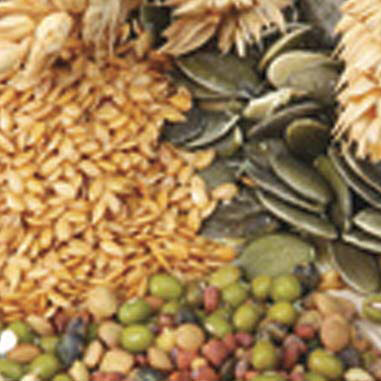Agriculture is thinking beyond the challenges it often faces with bank finance by stepping boldly into new frontiers. While farmers tap next-generation financing sources like crowdfunding, specialist funds are lining up to invest in the sector and tools like factoring are being adapted to fit agribusiness needs.
Crowdfunding improves farmers’ bankability
A recent expansion in crowdfunding is not only allowing farmers to invest in vital machinery or inputs, but can help them prove their creditworthiness and eventually graduate on to bank finance, speakers told a session on day three of the Fin4Ag conference in Nairobi.
CTA launched this February a crowdfunding pilot that has so far financed 60 farmers through a tie up with market leader Kiva.
“Finance is one of the key elements farmers need to transit from subsistence to commercial,” CTA’s ICT4D programme coordinator Ken Lohento told delegates.
The programme tackles repayment risk by channelling money through community groups. Local guarantors vouch for farmers that receive loans while other neighbour farmers support them with technical assistance to help ensure that the project they are borrowing for succeeds.
Kiva’s crowdfunding platform has already facilitated the disbursement of 700,000 loans with a combined value of $590 million in more than 77 countries, its regional representative for Anglophone Africa, David Kitusa, told the same session. By helping individuals and organisations extend interest free loans to farmers, crowdfunding “empowers the bottom of the pyramid,” Kitusa says.
Caribbean farmers prepare ground for factoring
The Caribbean is at the forefront of a move to boost farmers’ cash flow by applying traditional trade finance products like factoring to agriculture.
With factoring, producers of goods or services sell their ‘receivables’ (invoices) to factoring companies for instant cash, albeit slightly less than their face value. The benefit to farmers is that they can plough money straight back into inputs for new crops without having to wait for payment. They also safeguard themselves from the risk that a buyer will be unwilling or unable to pay.
Without factoring, it can take six to eight weeks for farmers to get paid for their produce, Jethro Greene, chief coordinator of the Caribbean Farmers Network (CaFAN), told a session at Fin4Ag.
CaFAN is pushing for greater integration of the scattered Caribbean islands’ financial systems to help support wider adoption of factoring. And with Caribbean farmers generating $100 million per year from selling their produce to organised buyers, they already have the scale necessary to enable factoring, Greene says.
Factoring company FactorPlus also sees the environment in the Caribbean becoming more conducive to factoring now that more farmers are familiar with the product.
Challenges remain, but FactorPlus is ambitious, according to general manager Niko Kluyver.
“We need a pan Caribbean factoring product rolled out across islands to realise volumes and buyer diversification,” he says.
Financial crisis spawns new breed of agricultural investment funds
Africa has been the biggest beneficiary of a baby boom in new agricultural investment funds (AIFs) over the past decade, delegates heard on another session at Fin4Ag.
Forty percent of new AIFs formed over the period focus on Africa, according to Calvin Miller, senior officer and leader agribusiness and finance group at the Food and Agriculture Organisation of the UN (FAO).
The growth demonstrates how strong returns on investment, greater risk sharing mechanisms and the support of governments and development agencies are helping over ride the perception that African agriculture is high risk.
By forcing investors to look further afield for returns, the global financial crisis was partly responsible for the birth of new AIFs.
At the same time, specialist funds like Incofin Investment Management and Root Capital have sharpened their focus on ‘impact investing’ aiming to promote financial inclusion and support farmers with technical assistance and training in business skills.






